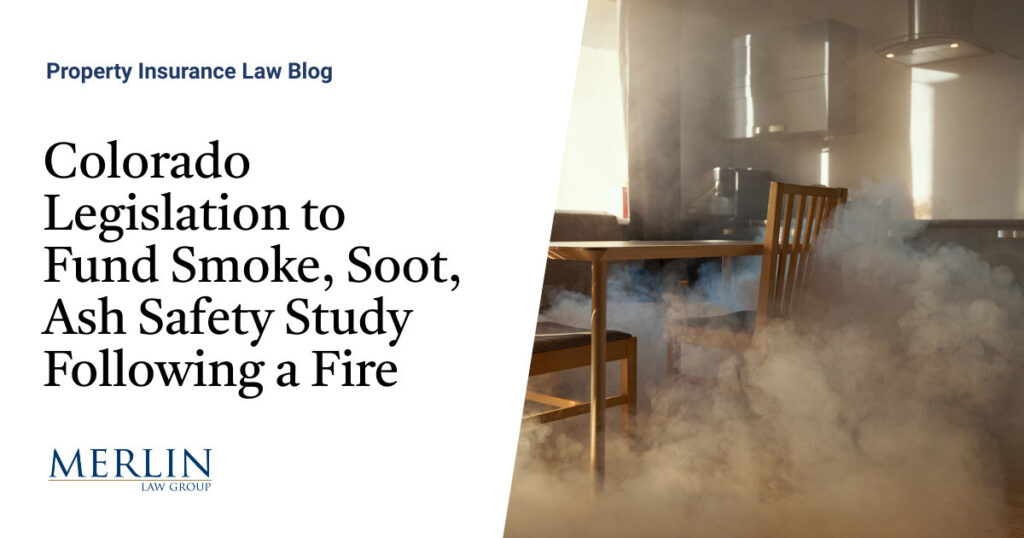Colorado Legislation to Fund Smoke, Soot, Ash Safety Study Following a Fire

The Colorado legislature has a pending bill that would fund a study of remediation practices for residential properties that have been damaged in a fire. A recent article, Boulder legislators spearhead bill tackling post-Marshall Fire nightmare of severe smoke damage in homes, noted the following about this proposed legislation:
[T]he experiences of other Marshall Fire ‘standing home’ survivors, who escaped flames but have lived with uncertainty about their homes’ safety. And it underscores a larger issue: the lack of scientific research and clear standards for testing or cleaning smoke-damaged homes from urban wildland fires.
Now, two Boulder-area legislators, state Reps. Judy Amabile of Boulder and Kyle Brown of Louisville, are taking the first step to address this gap. They have introduced HB24-1315, titled ’Study on Remediation of Property Damaged by Fire.’ The bill would fund a study to identify the best methods for inspecting, testing and cleaning homes contaminated by smoke from a fire. The House Business Affairs and Labor Committee has passed it. Now that the budget for the next fiscal year has been approved, bill HB24-1315 will have to make it out of more committees and head to the state House and Senate for approval, according to Brown.
A summary of the bill provides:
“The bill requires the Division of Insurance in the Department of Regulatory Agencies (DORA) to conduct or commission a study of remediation practices for residential properties that have been damaged in a fire.
The study must identify:
I hope this legislation passes. I have extensively written about personal safety from the residue of wildfire on this blog. For example, in After The Urban Wildfire and Safety Concerns, I stated:
A pamphlet, Are Our Schools Safe After the Marshall Fire, caught my attention. The bottom line is that smoke damage caused by urban wildfires is much more dangerous than conventional wildfires. The parents of school children in the vicinity of the Colorado Marshall Fire are correctly raising concerns about the safety of schools impacted by toxic smoke damage.
I made the following warning in Urban Wildfire Damage Requires Full Investigation and Testing to Determine if a Structure Is Safe for Occupancy:
For policyholders, public adjusters, and restoration contractors faced with fire and smoke-damaged buildings, I suggest finding a competent industrial hygienist to determine the extent of the smoke, soot, and ash residue as an essential first step following any fire investigation. But, unfortunately, some insurers are like the apartment landlords—they really do not want to find all of the dangerous residues because thoroughly investigating only raises the amount of money they have to pay.
The more and better scientific research that is done in this area of fire and smoke science, the better it is for all of us. If for peace of mind only, the money is well spent.
Thought For The Day
The important thing is to never stop questioning. Curiosity has its own reason for existing. One cannot help but be in awe when contemplating the mysteries of eternity, of life, of the marvelous structure of reality. It is enough if one tries merely to comprehend a little of this mystery each day. Never lose a holy curiosity.
—Albert Einstein







